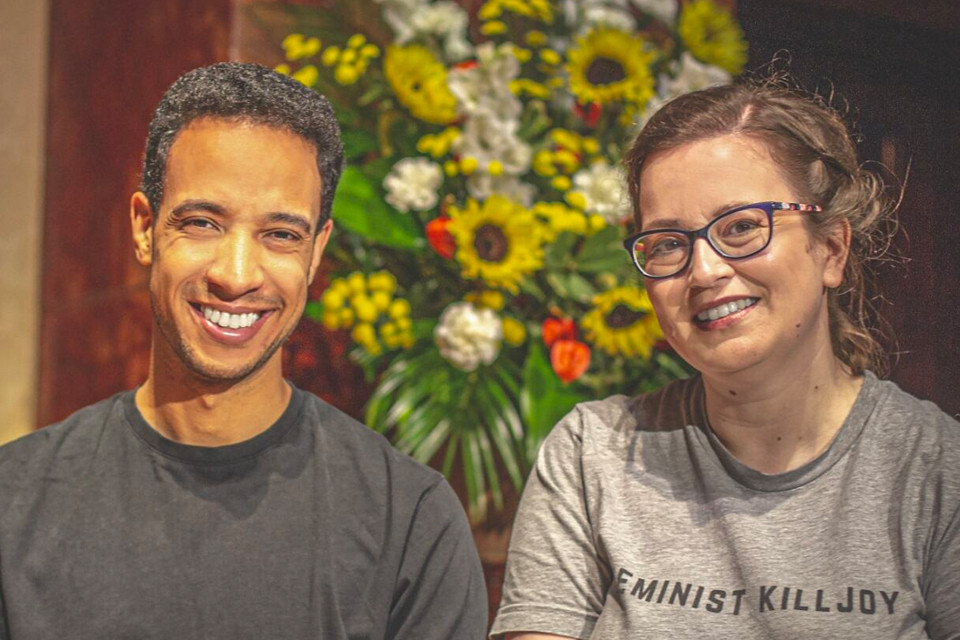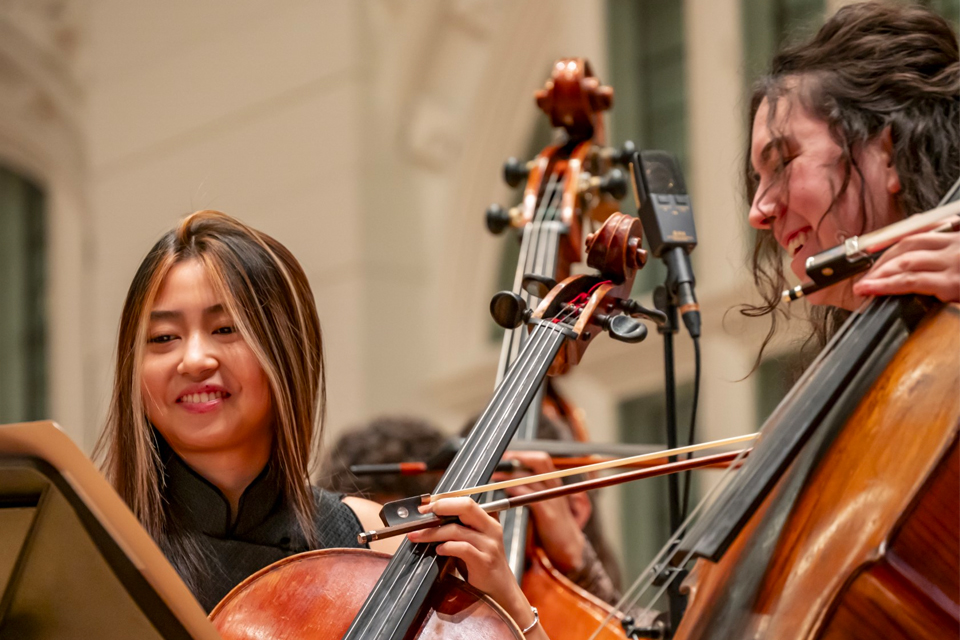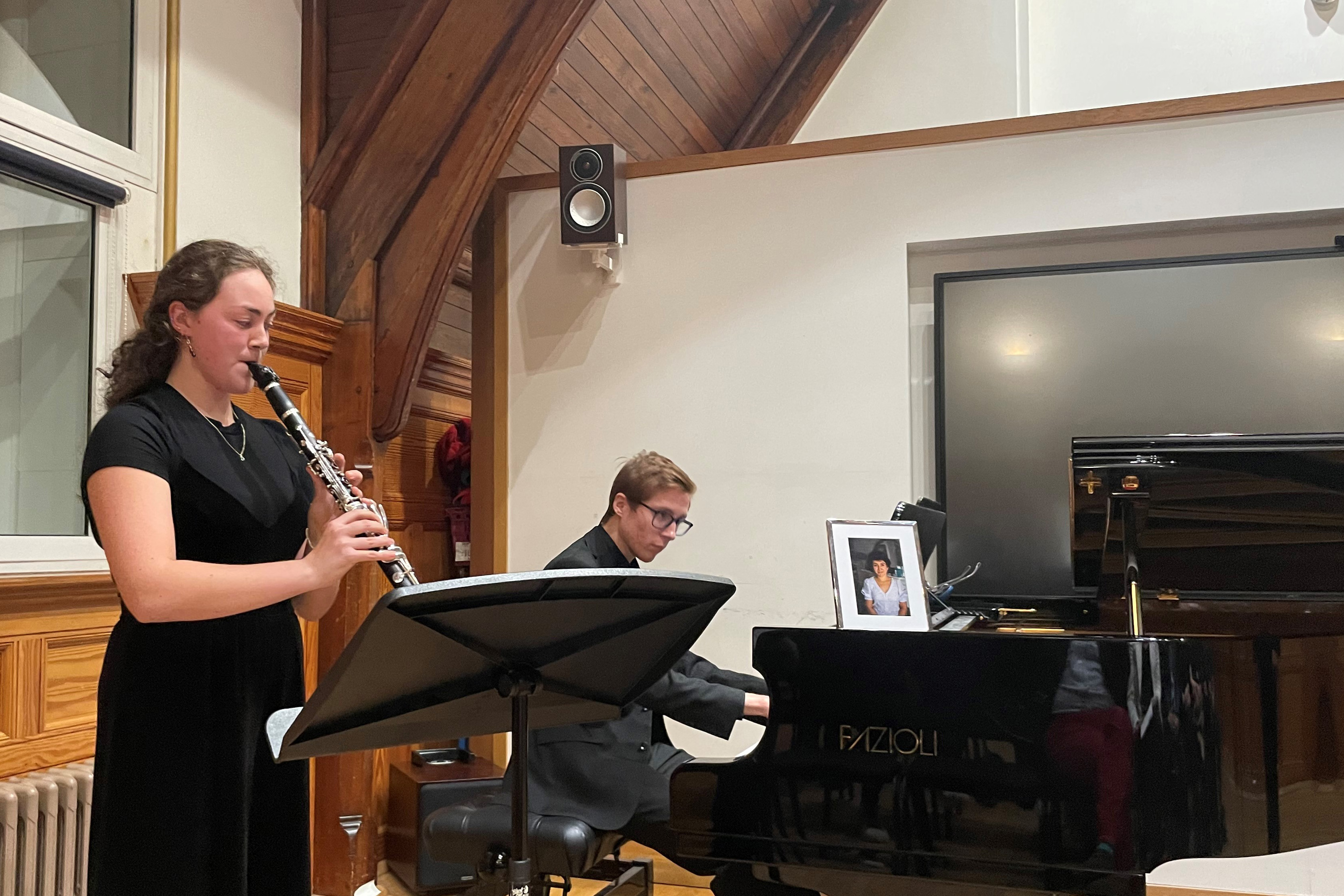Pioneering research: An Inconvenient Black History of British Musical Theatre
Share #UpbeatOnline
Royal College of Music Doctoral Programmes Coordinator Dr Sarah Whitfield is a musical theatre historian and dramaturg who specialises in Queer theatre, so her work has always been split between the historical and the contemporary. This means that she often sees her historical work through the lens of contemporary productions, enabling her to imagine how things might have worked in the past.
A meeting of minds
The landmark publication An Inconvenient Black History of British Musical Theatre was co-authored by Sarah and her colleague Sean Mayes, a New York music director with a background in London. Sean is active in the Broadway music community as a vocal coach, accompanist, orchestrator-arranger and pit musician, dividing his time between these roles and work as Professor in Musical Theatre at Sheridan College, Canada. Sean explained: ‘As an artist of colour, I’m frequently in the rooms for new productions of material that revolves around the history and contributions of Black performance. My work helps me to consider what performers at the time were facing, and what they were trying to unearth and explore within their own art.’
[image1]
The book was unveiled at a launch event at Wigmore Hall on 21 September 2021 and recently received Special Recognition at the Kurt Weill Book Awards, when it was praised by the panel for its ‘crystal-clear arguments made with electric passion and backed by thorough research’, filling ‘an important gap in telling the Black History of musical theatre in the first half of the 20th century.’
Both @maestromayes and I are deeply honoured to have been awarded special recognition for our book, An Inconvenient Black History of British Musical Theatre, published by @MethuenDrama as runners up for the Kurt Weill Prize https://t.co/98DMdjnJd9
— Sarah K. Whitfield (@sarahinthepark) November 18, 2023
On how their collaboration began, Sarah and Sean told Upbeat: ‘We kept meeting at musical theatre conferences, and during one in New York we got chatting about the kinds of histories we were seeing, which were always centred around the achievements of a few white men. It got us thinking about what the role of Black practitioners had been in British musical theatre: was the story that was being told correct?’ Sarah added: ‘I was editing a book called Reframing the Musical: Race, Culture and Identity at the time, and Sean wrote a chapter about the role of Black conductors and musical directors on Broadway.’
[quote quote="My work helps me to consider what performers at the time were facing, and what they were trying to unearth and explore within their own art." author="Sean Mayes"]
Uncovering forgotten stories
The contribution of Black musicians to musical theatre is hugely significant and previously neglected, so how did Sarah and Sean set about tackling such a vast topic? ‘We kept pulling on threads! We knew about a show called In Dahomey, composed by Will Marion Cook, which came to the UK in 1903 – and that allowed us to start to see the network of production.’ They were soon poring over contemporary newspapers via tools such as the British Newspaper Archive, and started to build a database of the performances they found. ‘We just kept finding more and more people, with very detailed descriptions of practitioners and their work.’
Among many fascinating figures who emerged during this research, Sarah and Sean were struck by the story of Will Garland, whom they described as ‘perhaps the most consistent figure in British musical theatre during this period. He was a producer, composer, playwright, performer and comedian, who came to the UK in 1905 and stayed until his death in 1938. He produced 20 musical revues across the UK, running his own theatre company and touring across Europe. Every time we thought we’d got to the end of his achievements, we found even more! His company became a training ground for musicians and performers, including Mabel Mercer, who started her career with Garland on tour and worked as his Music Director in 1917.’
[image2]
A thousand performances by Black artists
Sarah and Sean uncovered over 1,000 performances by Black artists. If they could have attended just one, which might they choose? ‘The secret memorial concert for Florence Mills, held in 1928, is where we’d take the time machine! Officially it was a concert to raise money for victims of the recent Thames flooding, but it was also a memorial for Mills who had died very young. On this one Sunday afternoon you see an incredible turnout of many of the Black practitioners working in British theatre at the time, with names you might recognise like Noble Sissle, Josephine Baker and Alberta Hunter. It reveals just how central these musicians and performers were to British musical theatre at the time’. RCM musicians will recognise the name of singer and dancer Josephine Baker: the Josephine Baker Trust supports many singers at the College.
A book launch at Wigmore Hall
The team also uncovered several key Black artists who had performed at Wigmore Hall, including J Rosamond Johnson (composer of the hymn Lift Ev’ry Voice and Sing) and ‘the incredible John C Payne’. This led to a meeting with Wigmore Hall Artistic Director John Gilhooly, ‘who very generously suggested that we launch the book at Wigmore Hall. We put together a concert lecture that explored some of the key themes from the book through performance.’
[image3]
So, why is the uncovering of all this extraordinary information ‘inconvenient’? ‘Well because it can’t be put back again! It is inconvenient for white histories to have to recall and unearth what’s been there all along. Black performance practice was a vital and significant part of British musical theatre’s history between 1900 and 1950, which shifts the way we tell this history. It has repercussions for more general histories of music, too.’
As Sean put it: ‘an active knowledge of the fact that Black artists have existed for much longer than most contemporary narratives let on is an act of resistance in itself, and can work to place Black artistry, and artistry from other artists of colour, in the mainframe.’
The Royal College of Music’s commitment to inclusion
There is a dynamic relationship between research undertaken at the Royal College of Music and the wider experience of College life. Research of this nature both reflects and feeds into the RCM’s ethos of inclusivity, enriching and broadening knowledge exchange at the College and beyond. Sarah’s ongoing RCM research includes exploring the work of women composers and conductors, and the Music, Migration and Mobility project. She told Upbeat: ‘I’m really keen to uncover more about the role of Samuel Coleridge-Taylor and his daughter, Avril. As composers they both wrote so much music, as well as developing a conducting practice and presence. If we only tell the story of some people in music histories then we miss so much, and the RCM’s commitment to inclusion in every aspect of its practice is a key part of why I’m working here.’
[quote quote="I’m so proud to be supporting and supervising doctoral research projects that take up these themes and ideas around uncovering hidden stories. Understanding what happened in the past can change what we think is possible in the future, and this is an exciting part of the work I’m doing now as Doctoral Programmes Coordinator at the Royal College of Music." author="Dr Sarah Whitfield"]


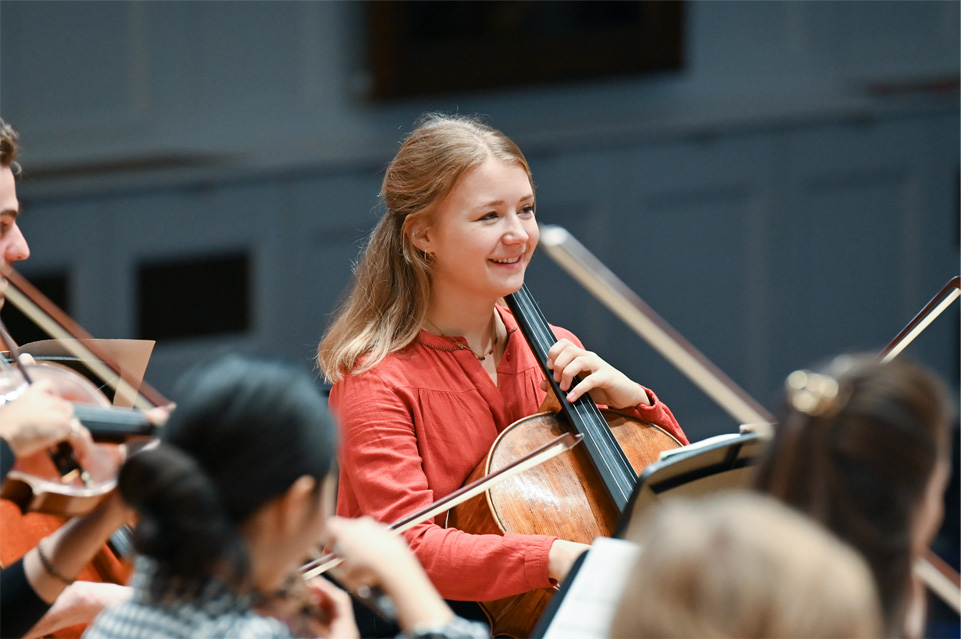

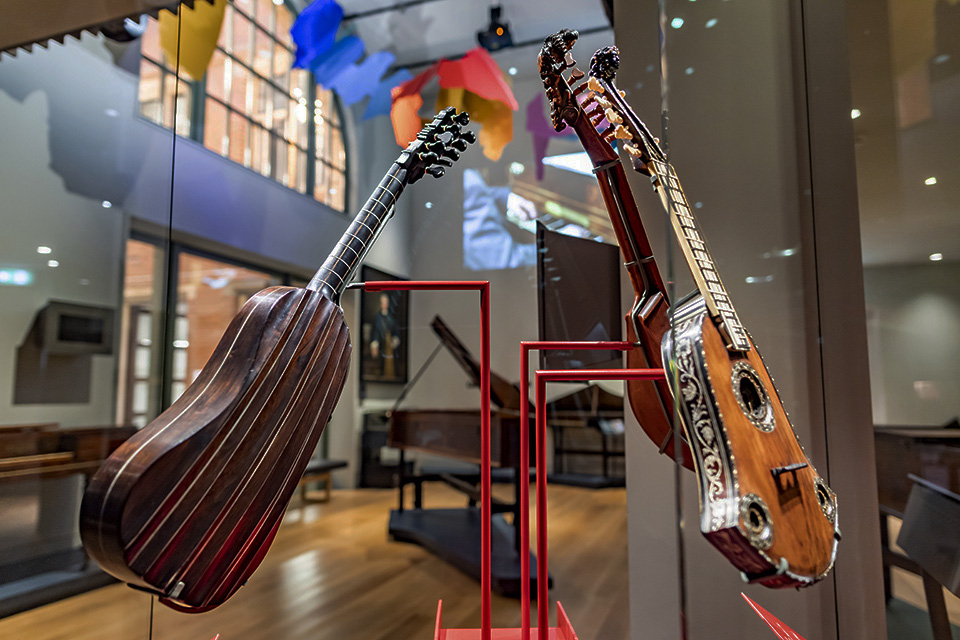

.jpg)
